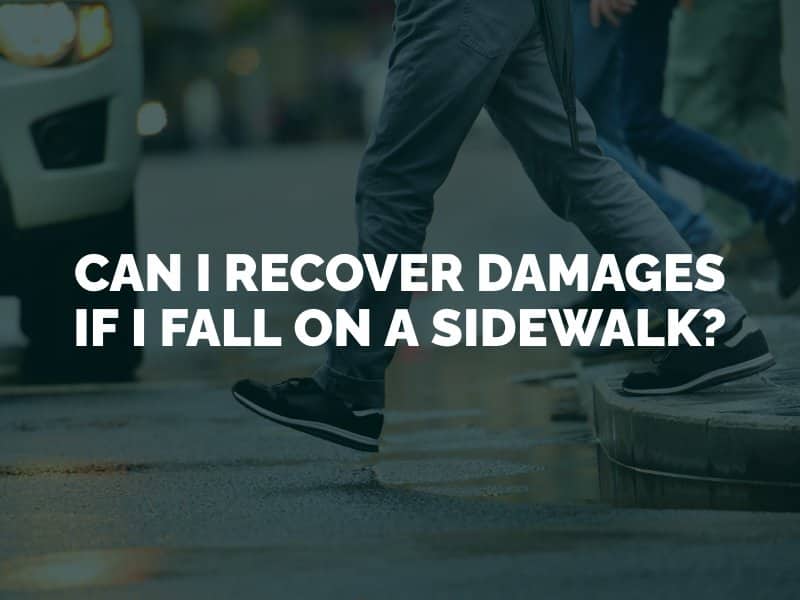If you slip or trip and fall while using a sidewalk in Colorado, the question of whether you can recover damages (financial compensation) depends on the circumstances. Sidewalks are generally public property, meaning that if you do have a case, you will need to go up against a government agency to pursue monetary damages. Before you can do this, however, you will need to find out if anyone is liable for your fall.

Even if you fell and suffered serious injuries, such as a hip fracture or wrist sprain, you may not have the right to file a slip and fall accident claim against anyone in Colorado. To have grounds for an injury claim, there must be proof that someone caused or contributed to your accident through an act of negligence. Negligence in premises liability law is the failure to use reasonable care in respect to property ownership or maintenance. What is reasonable is based on what an ordinarily prudent property owner would do in the same circumstances.
Negligence in a sidewalk slip and fall case often involves a lack of property inspections, maintenance and repairs. Property owners – including both private property owners and the government – have a legal obligation to maintain safe sidewalks for guests and visitors. This obligation means that they should routinely visit and inspect sidewalks for signs of issues that could foreseeably cause slip or trip and fall accidents, such as:
If any sidewalk defects are noted, the owner of the property must take steps to remedy the issue in a prompt and reasonable manner. This means the owner cannot wait several weeks to repair the defect, as this creates the risk of a foreseeable accident. If the property owner fails to repair the sidewalk in a reasonable amount of time, the owner could be held liable for a related fall injury. A property owner could also be held liable for other examples of negligence, such as failing to inspect the sidewalk regularly or ignoring safety complaints filed by the public.
Most sidewalks in Colorado are on public property. This makes them the responsibility of the state or city government. Although government entities were once immune from liability for injuries and accidents, most states have passed laws granting exceptions to sovereign immunity. In Colorado, the Colorado Governmental Immunity Act (CGIA) permits civilians to file claims against the government for its own tort or that of a government employee. A “tort” is an act of wrongdoing. It can describe negligence, recklessness or willful intent to harm.
If you wish to bring a lawsuit against the government for falling on a sidewalk and suffering an injury in Colorado, you must submit a letter explaining your intent to sue to the agency within 180 days. Then, to recover damages, you must prove that the government agency or one of its employees committed a tort that caused your accident. If you fell on a privately owned sidewalk, you will also need to prove your case using evidence against the property owner; however, Colorado law gives you 2 years to file a lawsuit against a private party, rather than 180 days.
If you or your Denver personal injury lawyer succeed in proving the elements of your sidewalk slip and fall case, you can recover damages for several economic and noneconomic losses. You may be eligible for compensation for your past and future medical bills, lost wages, pain and suffering, legal expenses, emotional distress, and more. For a free evaluation of your sidewalk accident case in Colorado, contact Fang Accident Lawyers today.